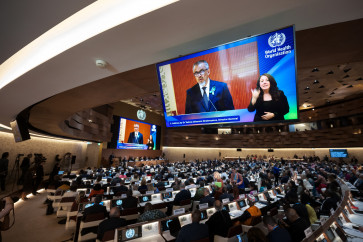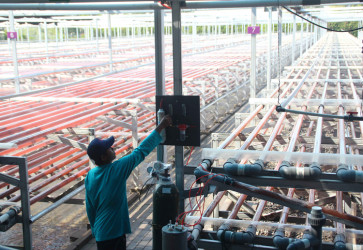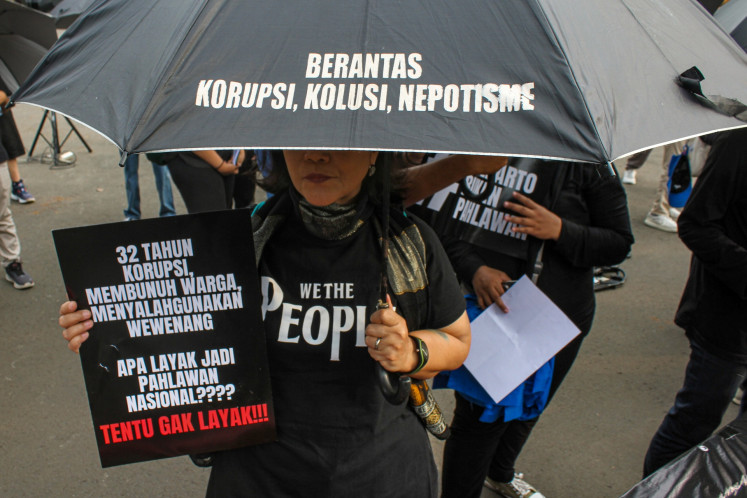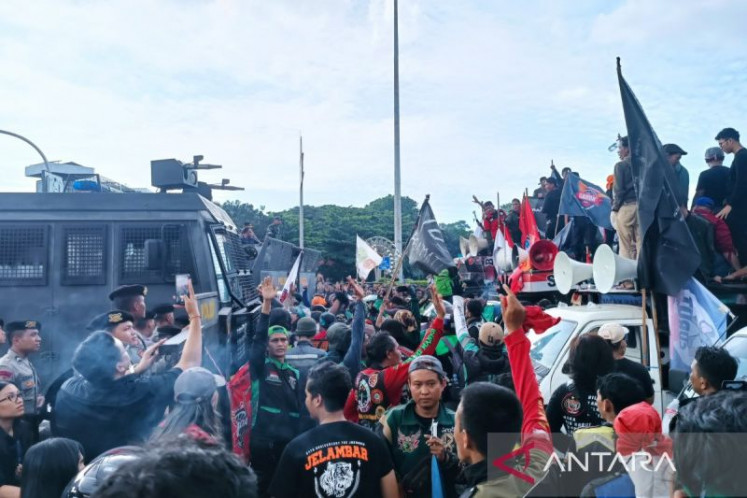Low tariffs still hinder Indonesia’s geothermal power growth
The recent launch of a state-funded well drilling program helps address the issue of high upstream investment costs, but the low tariffs remain a disincentive.
Change text size
Gift Premium Articles
to Anyone
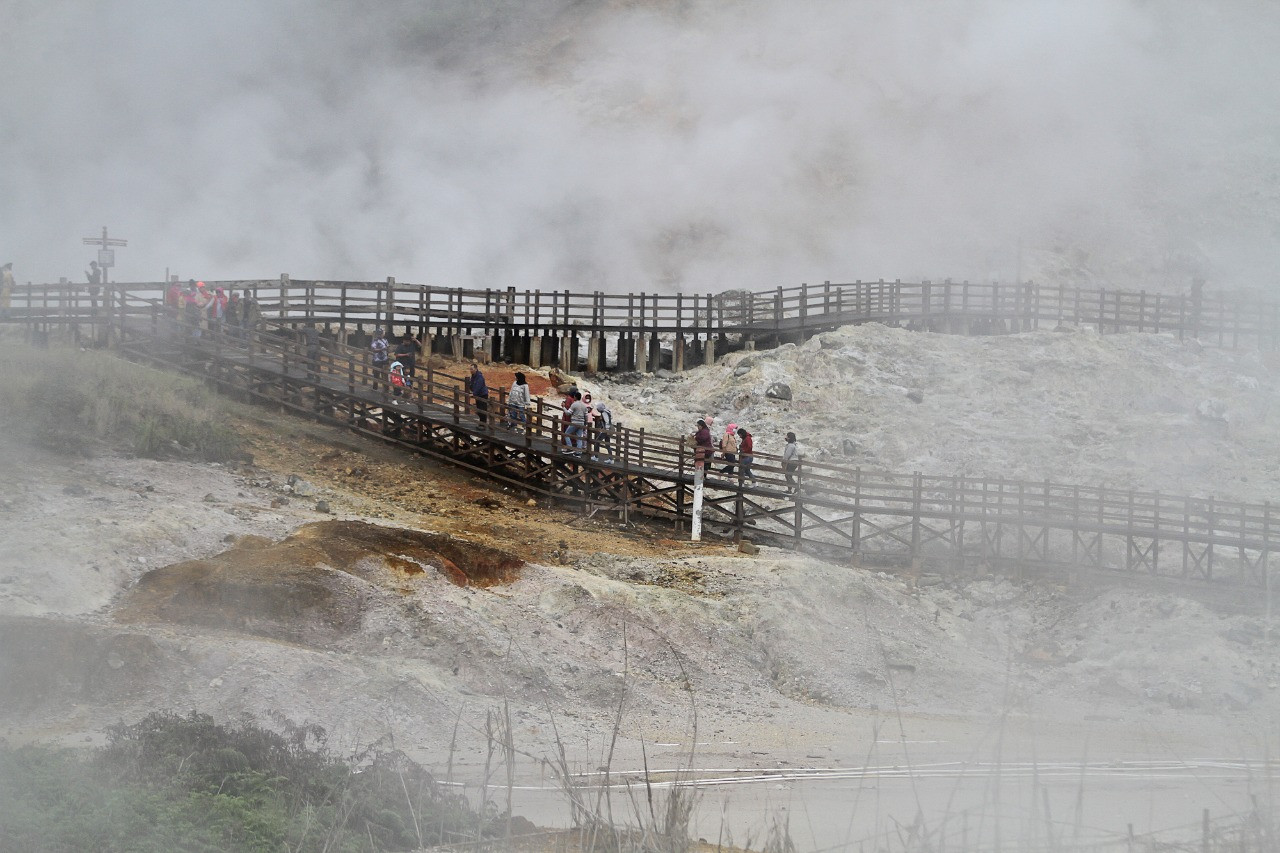
L
ow electricity offtake tariffs remain the unaddressed challenge to developing geothermal power plants in Indonesia, after the recent launch of a state-funded well-drilling program addressed the issue of high production costs, experts say.
Prevailing regulations peg electricity offtake prices for renewable energy power plants to that of coal-fired power plants (PLTU), which have much lower production costs owing to coal price caps, economies of scale and a lack of carbon taxes.
Specifically, Energy and Mineral Resources Ministry Regulation No. 50/2017 caps the selling price of green electricity at 85 percent of national electricity supply costs (BPP), which is calculated by state-owned electricity firm PLN based on prices from PLTU.
"The provision to lower geothermal electricity tariffs, in accordance with PLN’s request as the off-taker, remains the biggest obstacle," said Institute for Essential Services Reform (IESR) executive director Fabby Tumiwa.
Indonesia, which holds the world’s largest geothermal reserves, is aiming to have a total of 3.35 gigawatts (GW) of geothermal power production capacity by 2030, according to the long-term electricity procurement plan (RUPTL).
Out of a potential total of 23.7 GW in geothermal resources, only 9.2 percent, 2.18 GW, has been utilized, while 1.33 GW has been allocated for expansion plans until 2035, energy ministry data show.
Read also: Geologic time: Indonesia’s geothermal dreams deferred for 5 years
The IESR's Fabby said that some geothermal projects had proposed electricity rates ranging from 9 to 12 US cents per kilowatt-hour (kWh), higher than PLN's expected range of 7 to 8 cents per kWh, which was “not easy” to achieve due to geothermal projects’ high upstream investment costs.
He went on to say that social risks, including community resistance to geothermal power plant development, had caused uncertainty for investments.
“Pricing policy and expensive upstream geothermal investments are the main challenges in developing geothermal energy in Indonesia,” said Reforminer Institute executive director Komaidi Notonegoro.
Harris Yahya, geothermal director at the energy ministry, said on Nov. 25 that the government had introduced many fiscal and nonfiscal incentives to reduce geothermal electricity production costs, including exemptions on import duties and value-added tax (VAT).
The government also began executing the “government drilling” program this year, which aims to improve the quality of data before a block is offered to a business entity and reduce geothermal power plants’ exploration risks.
The energy ministry's geology agency began drilling the first exploration wells under the program on Sept. 3. The agency drilled two wells in the Cisolok geothermal working area (WKP) in Sukabumi, West Java, with an estimated potential of 45 MW.
Read also: Indonesia to get $300 million ADB loan for geothermal electricity generation
Between 2020 and 2024, the energy ministry plans to conduct geothermal exploration drilling in 20 blocks with a potential 1.8 GW capacity and a development plan of 683 MW.
"Power plant economics is one of the challenges, particularly for geothermal," said Harris, speaking at the New, Renewable Energy and Energy Conservation Conference and Exhibition’s (EBTKE ConEx) Asia Pacific Geothermal Forum.
Nevertheless, he reaffirmed Indonesia's commitment to achieve net-zero emissions by 2060 in fulfilling the Paris Climate Agreement.
Read also: EU firms want RE law before investing in Indonesia: EU ambassador
Putra Adhiguna, an energy analyst at the Institute for Energy Economics and Financial Analysis (IEEFA), suggested the government place a different value for baseload clean energy through an upcoming presidential regulation on green electricity offtake prices.
Renewable energy advocates eagerly anticipate the presidential regulation that is expected to introduce a feed-in-tariff (FIT) scheme, which would set green electricity offtake prices in order to create investment predictability.
The presidential regulation was reported in October to be in the hands of the Finance Ministry, which was reviewing the regulation's impact on state finances, particularly after the government issued the RUPTL, according to Kontan.com.
“Fine-tuning existing pricing regimes and regulations may present a better chance for pushing geothermal energy development in Indonesia,” said Putra.
Putra also noted that Indonesia could reflect from its experience in shifting from cost recovery to gross split in the upstream oil and gas sector to understand investors’ perspectives.
“There is no additional monetary value for geothermal as one of the few renewable energy sources that can operate as baseload. Hence, economics are a key barrier,” he added.

